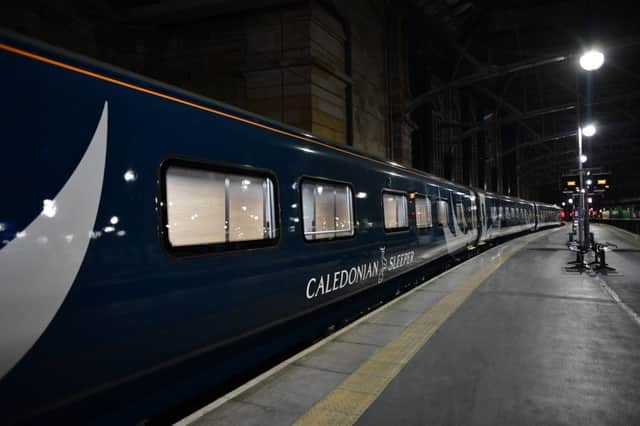Scotland’s railways is the story that keeps on giving but often not in a good way - Alastair Dalton


I’m normally to be found grilling transport ministers, not speaking in their honour.
But I’m not sure what Sir Eric Geddes would have made of what I recently told the Chartered Institute of Logistics and Transport (CILT), a centenary after he became its first president - and Britain’s first transport minister.
Advertisement
Hide AdAdvertisement
Hide AdEdinburgh-born Sir Eric, who started out as a lumberjack and steelworker in the US, later became synonymous with the word “axe” for the post-war austerity measures he introduced as chairman of the Committee on National Expenditure in 1921.
But the Conservative politician and businessman, who was educated at the independent Merchiston Castle School in the capital, was first and foremost a railway man, who became deputy general manager of the North Eastern Railway, the forerunner of today’s LNER, before revolutionising transport on the western front in the First World War.
It was coincidental, if appropriate, that my CILT talk was on “Scotland’s railways - the story that keeps on giving”. The rail network is a gift to journalists, like no other area of transport, and not necessarily in a good way.
While there are good news stories - like falling crime rates, and lowered fences for baby deer, to give recent examples - too often the industry attracts the opposite type of coverage.
Shrinking coffee cups
Apart from the perennial fare rises, delays and overcrowding - the booming railways are a victim of their own success - the industry has a propensity for repeatedly shooting itself in the foot.
Like Network Rail’s failure to check bridge heights, which nearly forced the cancellation of the newly-restored Flying Scotsman locomotive’s triumphant return to Scotland.
Or incoming ScotRail Abellio asking staff to cut its predecessor First’s logo off their uniforms. Or even First’s stewardship including shrinking the size of coffee cups on trains because it couldn’t cope with demand.
Discontented workers and passengers don’t hold back on leaking me the bad news - like the latest ScotRail staff survey results, or its decision to scrap seat reservations. Then there’s the seemingly never ending woes of the new Caledonian Sleeper.
Advertisement
Hide AdAdvertisement
Hide AdBy contrast, those responsible for promoting the railways need to up their game because far too often the “positive” news stories I write about rail are ones I have found myself.
Perhaps Sir Eric might have recognised the predicament. In his inaugural presidential address to the institute in 1920, he described the railways as the “great predominating factor in transport”.
However, he said that despite their modest rate of return, they “have figured in the minds of the masses as a great, bloated capitalist organisation, an object not of sympathy but rather of suspicion and jealousy”.
A century on, I don’t have such prejudices, and I don’t go out looking for bad - or good - stories about the railways, or any other forms of transport, despite what some vocal conspiracy theorists claim on social media. I’m also not looking for ways to criticise - or praise - Sir Eric’s successors as transport ministers or the governments they serve.
I’m just looking for interesting stories that our readers will find compelling, unexpected or useful. I remain keen to hear from whistleblowers when things go wrong, but I’d equally like to receive new and interesting information from those who want to champion the railways.